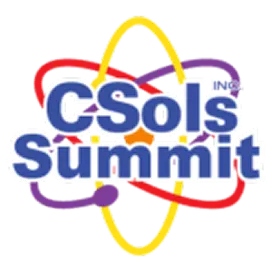Situation
The research and development labs of a global chemical company contracted CSols to develop a data strategy for a key business unit. CSols has worked with this client for many years on various informatics projects. They requested time with our data and analytics team to develop a data strategy that would confirm their data source approach and allow them to better enable their artificial intelligence and machine learning (AI/ML) objectives.
The project involved six locations across the United States and several Asian countries. The client's sites had varied ways of storing data despite the availability of a central Microsoft SharePoint instance. SharePoint is robust when used to its full extent, but the client's sites experienced limited consistency of use. They wanted to promote greater access to experiment information across sites to standardize their approach to project and experiment data while laying a foundation for deriving increased value from their data.
Objectives
The client desired a unified framework for their data. They had a defined business need to adopt an automated data-centric workflow to provide ease of use, integration, and self-service data accessibility to derive insights and optimize value. Additionally, the client wanted to enable machine learning (ML) and artificial intelligence (AI) opportunities and technology to get more value from their data. They had a full-time ML expert who quickly realized they could not get the required data easily, or if they could, it would not be usable due to inconsistencies and data integrity concerns.
The client felt that they needed a shorter-term solution to the data access problems while they waited for a custom-built scientific data platform to be built for them by a global information technology consulting firm. The platform project was many months (if not years) away from completion and an immediate solution that could be leveraged for the eventual platform deployment a primary goal.
Challenges
There was some skepticism among the laboratory staff that the global scientific data platform would accurately capture and leverage their data, workflows, and reporting needs. Any data platform solution needed to be capable of adjusting to mergers, acquisitions, or divestitures with minimal disruptions to laboratory workflows or data integrity.
In addition to these organizational challenges, the staff at the affected sites also had an inconsistent understanding of the available data and its potential applications. Access to information was challenging for them and the desire for change felt disruptive. Some sites participated more wholeheartedly than others due to these challenges and the availability of information required to build the strategy varied by site. CSols staff noted client assumptions where needed and worked with generic strategies where required to close the information gaps.
This was a new type of engagement for the client. They were unsure of what success would look like, and the scope was modified several times to add sites without clear objectives. Some internal organizational conflict arose over objectives and project ownership between the global team and the group that hired CSols. A secondary objective was to identify ML opportunities but the ability to do so was limited due to the depth of information provided. Given these challenges, the project experienced delays.
CSols' Role in the Solution
To address these challenges, CSols began with educational scoping kickoff meetings with each site. Requests for information were made for each site and exploratory conversations were held to understand the individual sites' data, their current uses, and their challenges and opportunities. Each site went through an assessment phase and a recommendation phase. This was determined to be the best course of action because the baseline of where they stood (at the time of the project) was critical to understanding where they could go in the future. Organizational considerations and understandings are as valuable in determining the path forward as data and workflow understandings are. Part of the effort also included education for the client on terms and types of possible solutions to support strategy development. As a client learns, their ability to better ask for what they want or identify opportunities and share information increases.
CSols provided the following resources to the client:
- Data Science Lead
- Data Engineer
- Project Manager
- Business Analyst.
The CSols team performed the information gathering and As-Is workflow documentation remotely and then provided recommendations. The Project Manager ensured timelines were monitored, escalations and risks were addressed, and a single voice delivered the recommendations.
Benefits

- The value added for this client was that they could now see a path forward to deploying a data platform for their business unit in parallel to the global efforts without loss of effort, skill development, or cost.
- The business unit's platform can connect to it as a data source, allowing both a global and local gain.
- Additional value came from a deeper understanding of their current systems, data, and opportunities.
- Organizational opportunities also became clear, including user adoption, skills required, and the virtues of a custom-built versus purchased platform.
- The client landed with a desire to move forward but to do so by exploring commercially available platforms that they could purchase, configure, and deploy without significant resource outlay. This would be something that would interface with the developing in-house platform when it comes online.
CSols' efforts gave them a clear understanding of the opportunities to be found in their data moving forward. The client now understands their state of readiness to meet FAIR data principles - how findable, accessible, interoperable, and reusable their data is. They also have a much better understanding of their data needs, challenges, and opportunities.
The strategic work they performed with CSols left them better prepared to make internal decisions about their data, the platform tool evaluation, and their path forward.
Click here to check out more project case studies that CSols has worked on.




Comments